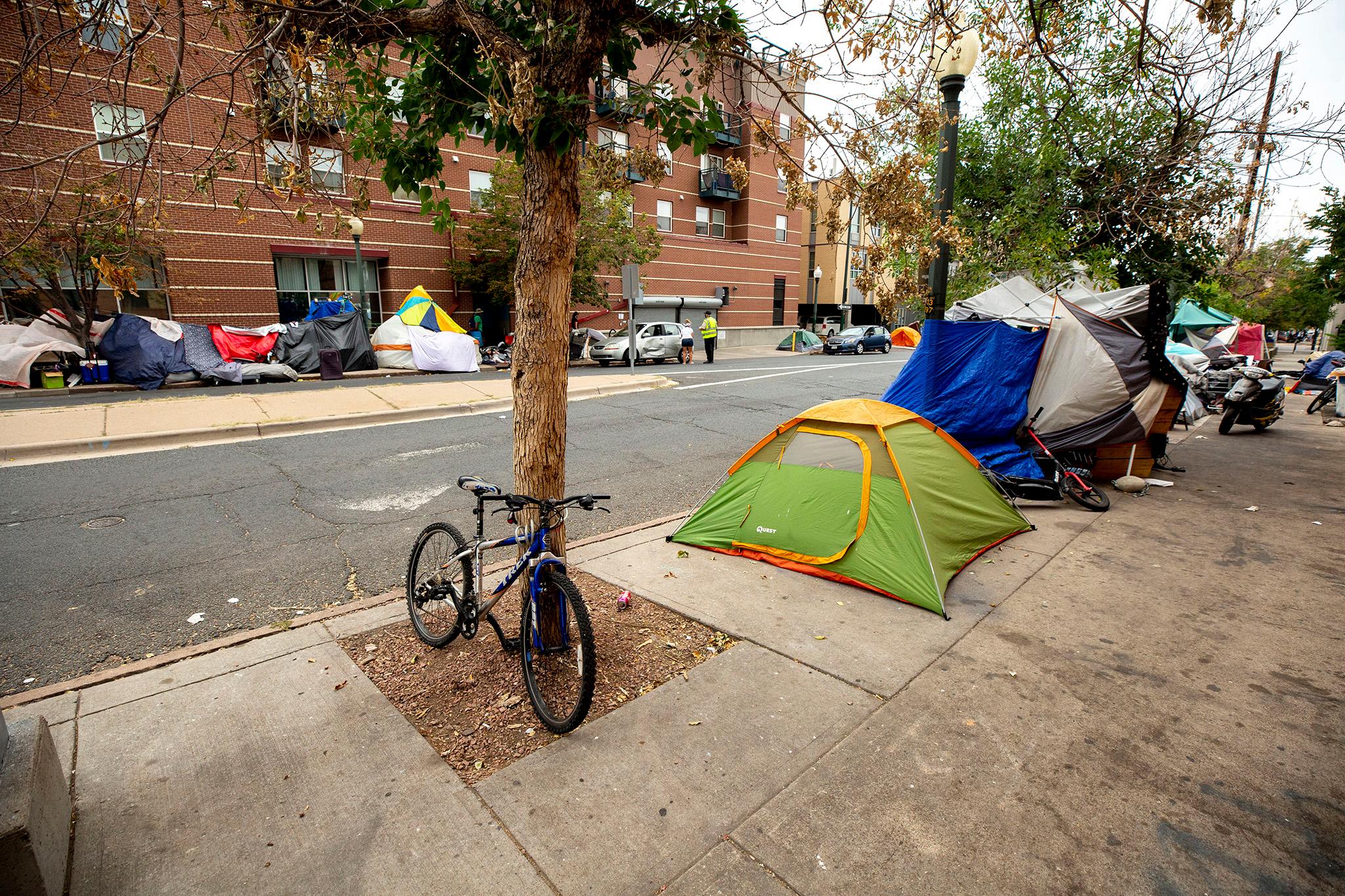A district judge has ruled that a county judge erred when he declared Denver's camping ban unconstitutional.
In his decision last week in the city's appeal of the county judge's ruling, Judge J. Eric Elliff of the 2nd Judicial District in Denver directed that a new trial be held for Jerry Burton, who was experiencing homelessness when he was ticketed under the camping ban last April. Burton said Tuesday that he planned to appeal his case, to the Colorado Supreme Court.
In his ruling, Elliff considered an Idaho case Denver County Judge Johnny Barajas had cited in which the Ninth Circuit Court of Appeals had concluded that a Boise camping ban could not be constitutionally enforced if adequate shelter was unavailable. In his ruling, Barajas cited as evidence that Denver's shelter system was inadequate testimony that among those with "limited access to adequate shelter" are individuals with serious mental illness and unaccompanied young people. Barajas added that workers on shifts needed a police escort to secure a bed "because of shelter curfews." Since his ruling, the city has opened more 24-hour shelters.
Elliff focused on Burton, not others experiencing homelessness, writing that Burton "was offered shelter and refused it."
In an email Tuesday, the Denver city attorney's spokesman Ryan Luby said, "Judge Elliff confirmed that the Ninth Circuit's ruling on the Boise case is not applicable here."
Burton had insisted on being given a ticket under the camping ban so that he could challenge the measure enacted by City Council in 2012 that outlaws on public property such activities as eating, sleeping or storing belongings while sheltering with tents, tarps or blankets. Under the law, police officers must prioritize getting people to comply by asking, and to get help for those who need it. Denver police don't often issue tickets or make arrests under the camping ban. City officials say the ban is necessary to maintain order and sanitation in public spaces.
Luby, the city attorney's spokesman, said the ordinance was written "to recognize the needs of all Denver residents and the special circumstances of those experiencing homelessness. We have implemented a humane and compassionate approach to enforcement. Our priority it to get resources and shelter to those who need it."
The advocacy group Denver Homeless Out Loud, of which Burton is a member, asked voters to repeal the camping ban last year, arguing that it created stressful and potentially dangerous encounters with police for people already suffering because the cost of housing has increased much faster than wages. Denver voters overwhelmingly decided to keep the ban.
In an interview Tuesday, Burton said he thought he had a good chance on appeal.
"I feel like justice and righteousness is on my side," Burton said.
Burton's attorney, Andy McNulty, said he hoped the state supreme court would agree to consider an appeal. The prospect that more people will lose their homes because of the economic slowdown created by the coronavirus made the issue urgent, McNulty said.
"There isn't a more pressing time for the court to weigh in," McNulty said.
Burton said that though his case involved the camping ban and shelters, housing was the larger issue to which he wanted to draw attention.
"The main focus should be providing housing that people can afford," Burton said.
Luby, the city attorney's spokesman, said the city was intent on "getting people inside and into housing, where they can receive support and help to achieve housing stability. Housing stabilization, homelessness resolution, and creating access to housing opportunity are top priorities for the mayor, city council and the community as a whole."













